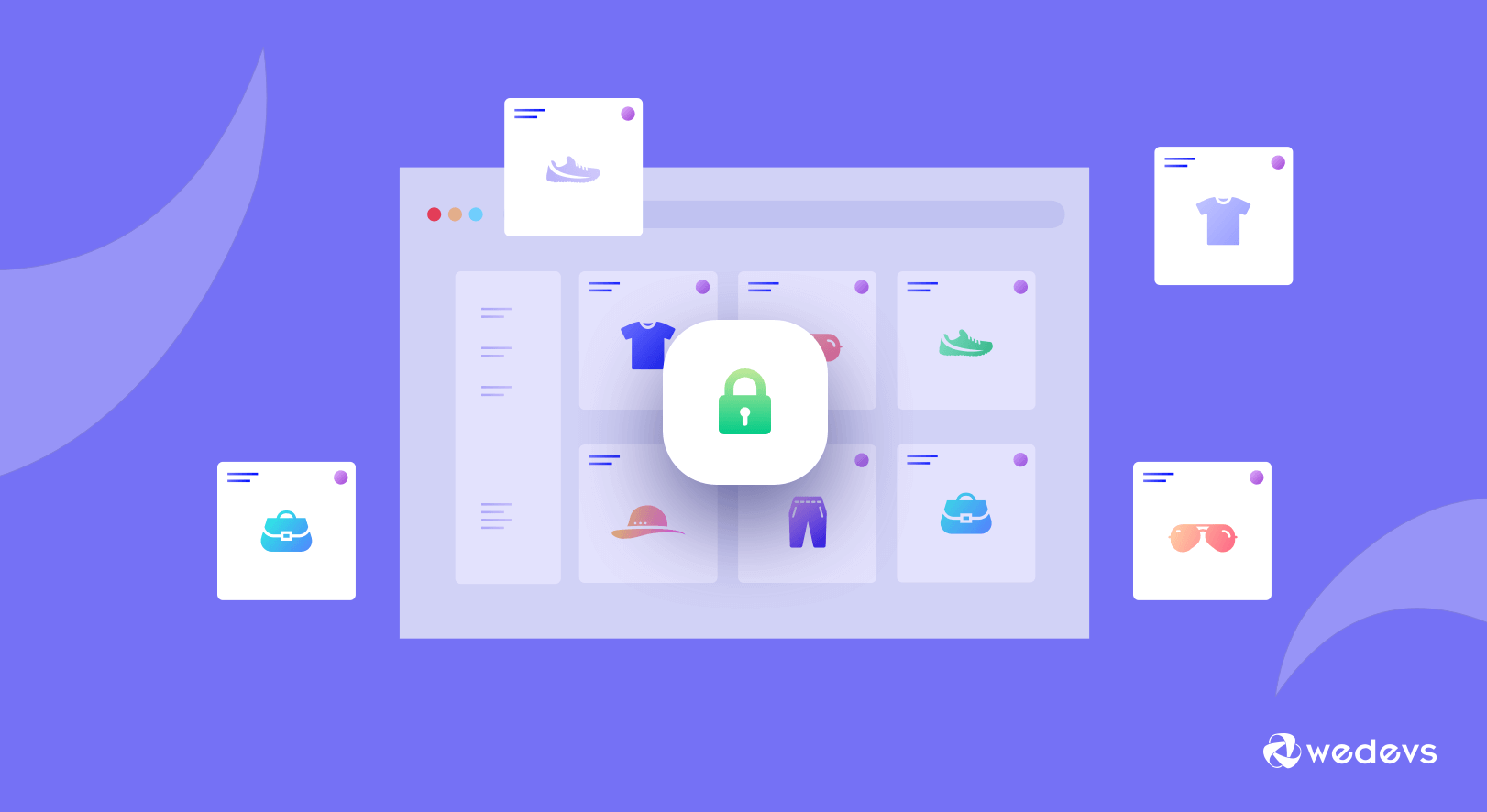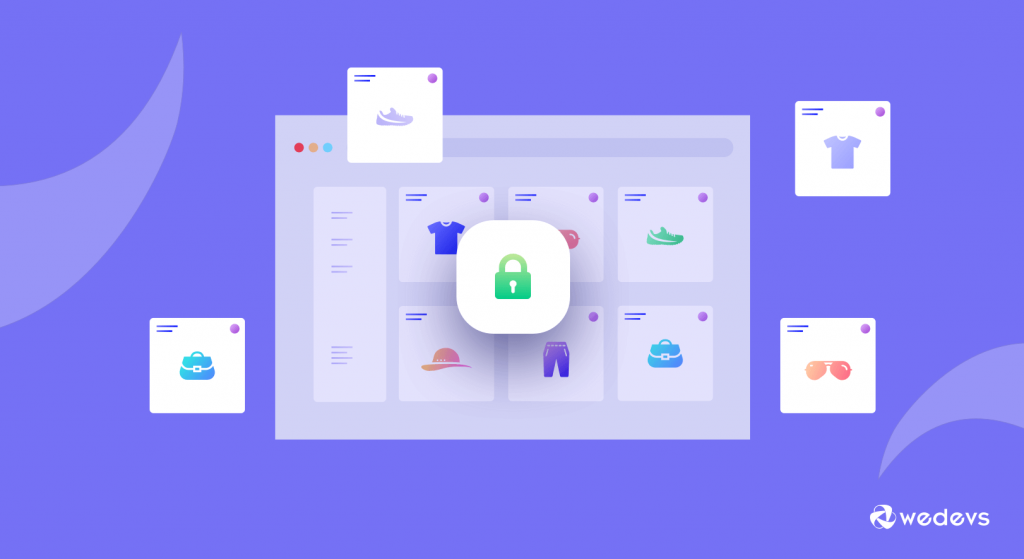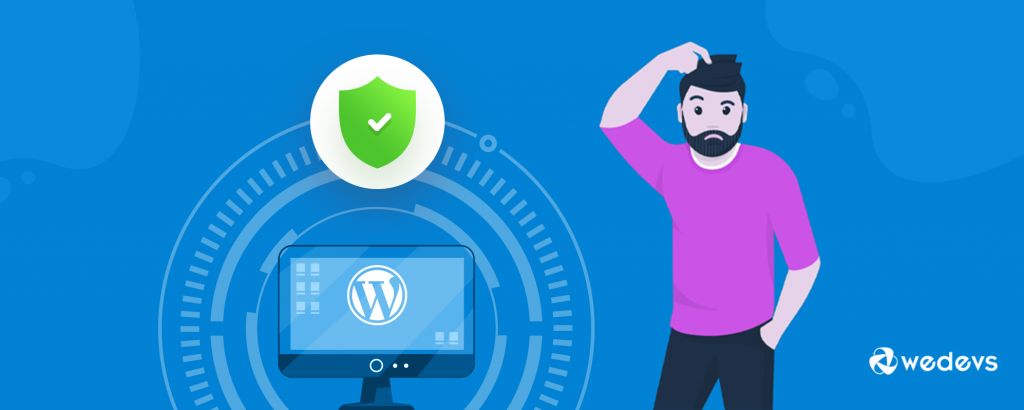
10 eCommerce Security Tips to Bulletproof Your Store in 2025
Being an eCommerce business owner, the biggest concern for you is to protect your online store from hundreds of security attacks every day.
Though WordPress is trying to ensure top-notch security for the users, according to a statistic, every day near about 70,000 WordPress websites on average are getting hacked.
Does it mean you should avoid WordPress? Absolutely NOT! Instead, you should always be aware of these attacks and prepare your website in such a way that nothing can break down your security system.
As you know precaution is better than cure. So, it is safer to proactively secure your WordPress site than to wait for an attack.
Today, in this blog post, we will discuss 10 proven eCommerce security tips thoroughly to protect your online store 24/7. So, keep reading and explore pro tips to bulletproof your online store!
What Happens If You Don’t Secure Your eCommerce Site?
Securing a website is the topmost challenge for any eCommerce site owner. Hackers are creating new traps daily and making noob people victims of it.
You should always be aware of them and take precautions against them. Otherwise, you will face-
- Data Breaches: Hackers can steal customer information like credit card numbers and personal details, leading to identity theft and fraud.
- Loss of Customer Trust: If customers don't feel safe, they will stop buying from you. Losing their trust is hard to fix.
- Legal and Financial Trouble: Breaking data protection laws can result in huge fines and legal issues, costing you a lot of money.
- Lost Sales: Cyberattacks can stop your store from working, causing you to lose sales and spend money on repairs.
- Falling Behind Competitors: Customers prefer shopping where they feel safe. If your store isn’t secure, they’ll go to competitors who offer better security.
Not securing your eCommerce store risks your business and your customers, so it's crucial to invest in good security.
What Are the Common eCommerce Security Threats?

A security breach occurs when buyers’ identities and financial details are accessible by unauthorized third parties.
Let’s look at some of the most common ways for cybercriminals to attack your online store.
I. SQL Injections
Do you know that it’s possible to submit a fraudulent SQL command to your site by inserting the command into a form on your website? This could be the form that your customers use to sign up for your email newsletter or set up an initial consult. So be aware of it.
II. Brute Force Attacks
One of the common ways to destroy your eCommerce security is the Brute Force Attacks. It works by simply guessing the details required to access the admin section of your eCommerce site. All that’s required is a program to execute the attempts to connect with different passwords and enough uninterrupted time to establish a connection.
III. DoS & DDoS Attack
A DoS (Denial of Service) attack is an attempt to shut down your online store flooding it with junk traffic and making it ungettable to normal users. A DDoS (Distributed DoS Attack) attack is performed from multiple devices or a botnet. A botnet is a ‘gang’ of computers infected with some malware. Both malicious actions have the same goal — to push down your eCommerce site.
IV. Phishing Attacks
Phishing attacks involve cybercriminals sending fake emails that appear to come from a legitimate source. These emails often contain links to fraudulent websites that look like your eCommerce site. When users enter their login details or payment information, the attackers steal this data. Be cautious of unexpected emails and always verify the sender before clicking on any links.
V. Cross-Site Scripting (XSS)
Cross-Site Scripting (XSS) is a threat where hackers inject malicious scripts into web pages viewed by other users. This can happen when attackers input malicious code into a form on your website, like a comment section or search bar. When other users visit these pages, the script runs in their browser, potentially stealing their data or altering the website's behavior.
You will be facing these serious kinds of attacks unless you make sure of a full-fletched eCommerce security system for your site.
10 Proven eCommerce Security Tips to Protect Your Online Store
eCommerce security isn’t something to be taken lightly. Major data leaks have fundamentally damaged trust in digital security. Consumers are comfortable making payments through familiar systems like PayPal, Stripe, etc.
But it takes a bit more convincing to risk their credit card details with unknown companies like you, right? So, to make them convinced to purchase from your store, first, you need to make sure that there is nothing that can breach data from your site.
This is why we are going to discuss some pro tips for eCommerce security that can make your store unbreakable.
Here are the tips:
- Use Impossible to Guess Password
- Update Your Site & Plugins Regularly
- Choose a Strong Hosting
- Implement SSL Certificate
- Take a Regular Backup
- Stop Brute Force Login Attempts
- Set Access Roles
- Authentication Keys
- Prevent SQL Injections
- Create Unpredictable Admin & Other Usernames
Now let's get into the details!
1. Use Impossible to Guess Password

While passwords are experiencing competition from technologies such as facial recognition and multi-factor authentication (MFA), they're still the standard access keys to most software. We need passwords for every service or website we log onto so, for many users, it just seems easier to use the same password for multiple services.
The problem with this approach is that, once the reused usernames and passwords have been taken by hackers, they can be applied to various services, leading to widespread fraud.
It is wise to never use the same password for two accounts. Use different passwords for your website database, hosting server, admin panel, FTP accounts, and connected email accounts. It is better to use long passwords made of both numbers, special characters, and alphabets.
2. Update Your Site & Plugins Regularly
One of the most important things to recognize about eCommerce security is that it is not a one-off event. You need to regularly monitor the security of your eCommerce site, make regular back-ups, and ensure that you are up to date with the latest software, plugins, and extensions.
As soon as new versions are released, patch your site up immediately, to avoid leaving yourself vulnerable to attackers. But avoid installing any questionable software that could put the security of your site at risk. Instead, install and update your WordPress version, themes, and all the plugins from the official website.
Monitor the PHP version you are using. It should automatically update with your WordPress.
3. Choose A Strong Hosting

There are many hosting providers. Choose the one that has automatic WordPress update and backup facilities. And if you are using a Payment Gateway such as Stripe or PayPal, make sure the servers meet the PCI Compliance requirements. More things to check;
- Firewalls
- DDoS Protection
- Domain Name Privacy
- Spam Filter
- Virus Protection
One of the most important is the firewall or a piece of software that is designed to protect your website by filtering requests to your web server. They will then block certain requests, based on a variety of factors before they reach your web server.
4. Implement SSL Certificate
SSL (Secure Sockets Layer) is a digital certificate that facilitates the establishment of a secure connection between server and users. This is mandatory for any website receiving sensitive user information such as credit card details. Many web-hosting providers include an SSL certificate in their package.
SSL plugins like Really Simple SSL plugin redirect every request to HTTPS (HyperText Transfer Protocol Secure). It is the online protocol for secure communications over the internet and one of the easiest ways to help secure your eCommerce website from fraud.
Designated by a closed green lock icon on the browser address bar, HTTPS websites are deemed authentic and secure because they're certified.
5. Take a Regular Backup
Backup is like an insurance policy for your website. You hope you never have to use them, but you’ll be glad you have them if you do. If your online store goes down, not only could you lose sales, you could also lose order information and customer trust.
Can you imagine how long it will take you to build your website from the ground again? This could be your nightmare, right? However, you can avoid such an event by using hosts that provide backup support. So choose the ideal eCommerce hosting for your online store and backup your site with ease.
6. Stop Brute Force Login Attempts

Everybody knows about this attack, we guess. A brute force login attempt is where hackers will use specialized software to try every combination of symbols, numbers, characters, and letters until they find a combination that allows them access. Once they get access, anything can happen against you.
Your website can identify the forceful login attempts made by bots. You can solve this problem by setting a limit to the number of login attempts before the IP address is blocked from making further requests. However, the issue with this method is that the hacker can lock out vast quantities of user accounts, which will then cause a DoS (denial of service).
An even better method that you can use is to log out an entire IP address after a sufficient number of failed login attempts.
7. Set Access Roles

If you’re the only person running your website, you don't need to think about WordPress user roles. However, if you ever need to give other people access to your WordPress site, WordPress user roles are essential for controlling what actions the various users at your site are permitted to take
You can specify certain tasks that you expect from individuals and give them access to only the portion of the data necessary to complete the task. By limiting the actions a certain individual is authorized to take, you can enhance your website security.
If you want to create custom user roles, you can check our blog on creating WordPress custom roles easily.
8. Configure The Authentication Keys
WordPress uses cookies to verify the identity of logged-in users by analyzing the stored data on the browser. To make this information hard to break into, WordPress uses keys and salts in the wp-config.php file.
WordPress security keys are made up of four authentication keys and four hashing salts (random data) that when used together they add an extra layer to your cookies and passwords. So, configure the authentication keys to secure your stored data.
9. Prevent SQL Injection
An SQL injection attack is a code injection hacking technique where a cybercriminal attempts to insert SQL (structured query language) statements into input fields. The reason they will be able to accomplish this is because of poor coding in your web applications that leaves them vulnerable.
To stop an SQL injection before it happens, therefore, you will need to utilize typed and parameterized database queries, which you can accomplish using a programming language such as PHP or Java, among others.
10. Create Unpredictable Admin & Other Usernames
Using a unique username, you can enhance your website's security. Typically, we do not give as much effort to create usernames as we give to create a password. Maybe it's a psychological issue. But creating an easy username can be an invitation to hackers to attack your site.
When you have a simple username, potential attackers are more likely to guess the right one. However, a long username is more challenging to guess.
Also, you should always use different usernames for different accounts. This way, hacking into one of your accounts will not disclose the usernames of your other accounts.
Bonus: Turn Your eCommerce Store into a Multivendor Marketplace for More Revenue!

If you own an online store and want to convert it into a multi-vendor marketplace, then Dokan multi-vendor is the plugin that can help you the most.
Dokan multivendor is the first WordPress plugin to turn a store into a multi-vendor marketplace. It’s compatible with any WordPress and WooCommerce themes. So you don’t need to worry about creating a new theme for your marketplace.
As you are an online store owner, so you have already managed your domain and web hosting. And you also know everything about WooCommerce. You just need to do two more things to convert your online store into a multi-vendor marketplace.
- Install Dokan on your WordPress website
- Choose a Dokan suitable theme to decorate your marketplace.
Unlike many other platforms, Dokan comes in a lite version. Facilities of this lite version work as a package for small business owners. After building your own marketplace, you can generate revenue from the commission.
Dokan lets you generate 4 types of commissions:
- Global commission
- Store base commission
- Product base commission
- Category base commission
So, turn your online store into a multivendor marketplace using Dokan and earn revenue from commissions.
Final Words on eCommerce Security
An eCommerce business goes more than just using your website to sell stuff online. If you own an eCommerce business, you have to ensure that the security of its user is guaranteed.
Give them confidence that their credit card details are secured under your authority. It is your responsibility to ensure the safety of users’ information on your site and prevent hackers from accessing it. Thus, you can earn customers' trust.
Once you have gained their respect towards your business, nothing can be a burden for you to become a successful eCommerce business owner. Good luck!